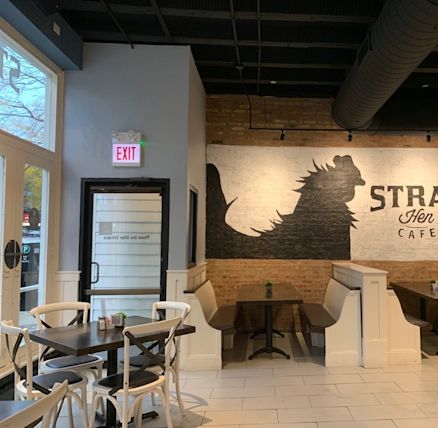

The Taiwanese cat café concept next spread to Japan, and later to most other countries around the world. The world's first cat café, named "Cat Flower Garden", opened in Taipei in 1998, where there is also a luxurious "Cathy Hotel" especially for cats. Taiwan Ĭats are popular pets in Taiwan, with the cat population increasing rapidly in recent years. Customers can even adopt a cat at the cat cafés. Cat cafés in South Korea have been very successful among both residents and tourists in South Korea. South Korea also has several cat cafés, most in Seoul, the capital city of South Korea.

Ĭuddles Cat Cafe was investigated by Agri-Food and Veterinary Authority of Singapore (AVA) in December 2014. Cat Cafes usually have their own/specific houserules. Individuals having questions with their cat needs, can join the Cat Welfare Society, which helps with medical fees, sterilization costs or adopting of the cats.

The Singaporean Cat Cafes are regulated and licensed by AVA and they are all bound to a 'code of conduct'. Neko no Niwa, The Company of Cats and The Cat Café feature cats who were rescued. The cat cafés are named Neko no Niwa, The Cat Café, The Company of Cats, Meomi Cat Café and Cuddles Cat Café. There are at least five cat cafés in the city. The first cat café in Singapore is Cat Café Neko no Niwa (Japanese for ‘Cat Garden’). One café in Tokyo added goats as a way of having a unique element. From 2012 the cats could be displayed until 8 pm, but in 2016 the guidelines of the environment ministry state that they may visit and play with customers until 10 pm. Many cat cafés also seek to raise awareness of cat welfare issues, such as abandoned and stray cats and many often have cats from local animal shelters to help them lose any fear of humans and advertise them for possible adoption. Japanese cat cafés feature strict rules to ensure cleanliness and animal welfare, in particular seeking to ensure that the cats are not disturbed by excessive and unwanted attention, such as by young children or when sleeping.
#Stray hen cafe license#
Every cat café in Japan is required to obtain a license and comply with the strict requirements and regulations of the nation's Animal Treatment and Protection Law. Some feature specific categories of cat such as black cats, fat cats, rare breed cats or ex- stray cats. There are various types of cat cafés in Japan. Other forms of pet rental, such as rabbit cafés, are also common in Japan. The popularity of cat cafés in Japan is attributed to many apartments forbidding pets, and to cats providing relaxing companionship in what may otherwise be a stressful and lonesome urban life. The first was Cat's Store ( 猫の店, Neko no Mise), by Norimasa Hanada, which opened in 2005. Asia Japan Ĭat cafés are quite popular in Japan, with Tokyo being home to 58 cat cafés as of 2015. International Cat Care takes a more positive view, saying, "It is a difficult environment to get right but it's not impossible by any means." However, all the charities agree that cat cafés need to be properly regulated. In the United Kingdom animal charities disagree on whether cat cafés are a suitable environment for cats, with the RSPCA, Cats Protection and the Celia Hammond Animal Trust criticizing them for keeping large numbers of cats in a confined space with a revolving population of people. From 2005 to 2010, seventy-nine cat cafés opened across the country.

After this, the popularity of cat cafés boomed in Japan. Tokyo's first cat café, named "Neko no mise" (Cat’s Store), opened in 2005. Due to Japan's land size and population, many residents live in small apartments or condominiums which do not allow pets, making a cat café a very popular destination for young workers looking for the companionship and comfort offered. "Cat's Time") was opened in Osaka in 2004. The concept blossomed in Japan, where the first one named "Neko no Jikan" (lit. The world's first cat café, "Cat Flower Garden" (貓花園 ), opened in Taipei, Taiwan, in 1998 and eventually became a global tourist destination.


 0 kommentar(er)
0 kommentar(er)
